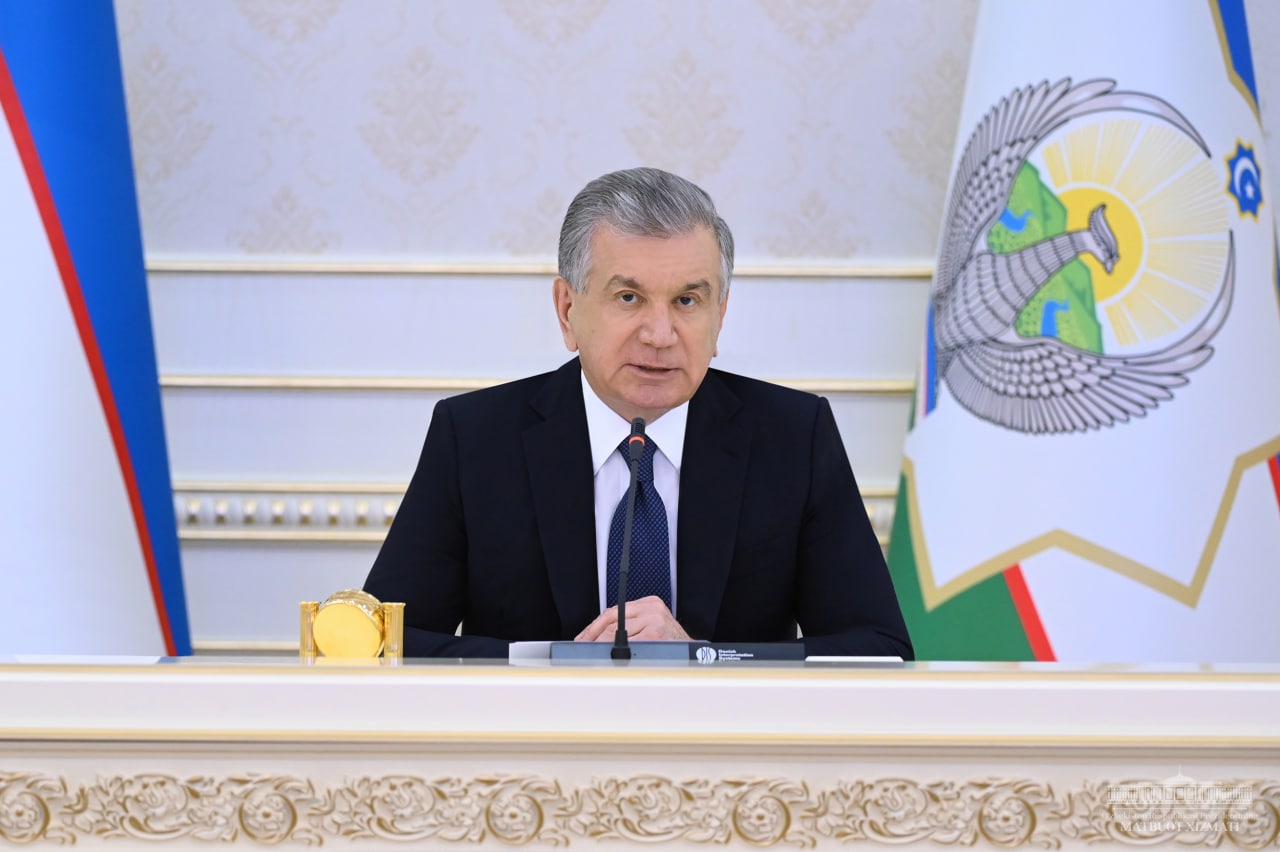
The Government portal of the
Republic of Uzbekistan
The introduction of a new system in design and construction defined
2022-07-07 | Politics
On July 6, President Shavkat Mirziyoyev chaired a videoconference on priority tasks in construction, architecture and urban planning.

Construction is one of the leading sectors of the economy. As a result of the wide opportunities provided in the sphere, the volume and scale of work have increased. Over the past five years, more than 8 thousand buildings for 250 thousand apartments, 21 thousand service and more than 10 thousand social facilities, and 31 thousand enterprises have been built.
During the same period, the volume of construction work increased 4 times, amounting to 107 trillion UZS in 2021, and 46 trillion UZS in five months of this year.
Such growth, of course, pleases. Along with this, there are still shortcomings in the industry, primarily in design and quality assurance. Priority is given to construction, but attention to architecture has weakened. In this regard, issues of streamlining construction and design work were considered at the meeting.
In many places, previously approved master plans no longer correspond to the current demographic and economic growth. According to the analysis of foreign experts, if there are no master plans, infrastructure costs will double by 2030, and agricultural land will be reduced by 30 thousand hectares.
The introduction of a new system of regulation of construction and design work at mahalla, district, city, regional and republican levels were determined at the meeting.
It was decided to create a Republican Council for the development of master plans for the regions. The post of Chief Architect with the status of the First Deputy Minister will be introduced in the Ministry of Construction. Project offices led by the first deputy hokims and chief architects of the regions will be opened in the regions. Architects will manage district and city construction departments.
The development of master plans will take place in 3 stages. In the first stage, the Republican Council will have to approve the main scheme of the region indicating the directions of development for 5-, 10- and 20-year perspectives, define the boundaries of land and infrastructure in it. Based on this, in the second stage, a master plan of the region will be developed. It will define industrial, service and residential areas, the location of roads and infrastructure networks. In the third stage, the chief architects and first deputies of hokims of regions, districts and cities will approve master plans, which will specify the location of housing, schools, kindergartens, hospitals, trade and service facilities.
In short, from now on, the Ministry of Construction will not solve such issues as determining the location of a store in mahallas or lighting the building. Such issues will be resolved at the district and mahalla levels.
The Head of the state touched upon the issue of improving urban planning rules and bringing them into line with international standards. In particular, the procedure for obtaining the conclusion of the technical council for projects prepared based on international standards will be abolished. Projects that have passed expertise abroad will be recognized directly.
In addition, the system of formation of prices for goods and services in construction was not ordered. There is no single approach to the evaluation of works. As a result, there is a wide scope for embezzlement and corruption.
In this regard, it was decided to exclude 147 norms related to the evaluation of construction works from the town-planning rules. The task was set to launch the “Classifier of Construction Resources” platform and create conditions for the market formation of prices of more than 100 thousand construction materials and services.
An electronic catalog of standard projects of social facilities will also be created to reduce the time required to prepare projects in the “Shaffof Qurilish” program. All customers, design and contracting organizations can use them freely. At the meeting, the activities of companies of a single customer under the hokimiyats of the regions were analyzed. Instructions were given to attract foreign managers, qualified architects and engineers, digitalize the construction process and take into account the volume of implemented work.
At the same time, starting next year, the functions of single customer companies for the development of pre-project documentation, technical supervision of new construction will be gradually outsourced to the private sector.
The President touched upon the issue of construction quality.
As it was noted at the meeting there is a separate state inspection in this sphere, whose employees see their main task in imposing fines. Although 70 percent of the shortcomings in construction are repeated and they are easy to prevent.
In this regard, the need was noted for reviewing the activities of inspection and focusing its work on analyzing and eliminating the causes of systemic deficiencies in construction. The Ministry of Construction was tasked with digitalizing all processes from the registration of objects to their acceptance into operation.
Regarding the training of personnel, the need to provide academic and financial independence to architectural institutes in Tashkent and Samarkand was emphasized. Training will be carried out based on international educational programs. Students will be assigned to leading design and survey institutes and construction clusters.
Shortcomings in mortgage lending were also touched upon at the meeting. In particular, the budget for the current year includes 13 trillion UZS of credit resources to commercial banks for 43 thousand housing units and 1.2 trillion UZS of subsidies to 29 thousand people. However, to date, only 28-30 percent of these funds have been allocated.
In this regard, instructions were given to reduce bureaucracy, organize mortgage centers that will provide comprehensive services to the population.
The ministers, hokims, and their deputies reported on the discussed issues and expressed their opinions and suggestions.
Source: UzA









